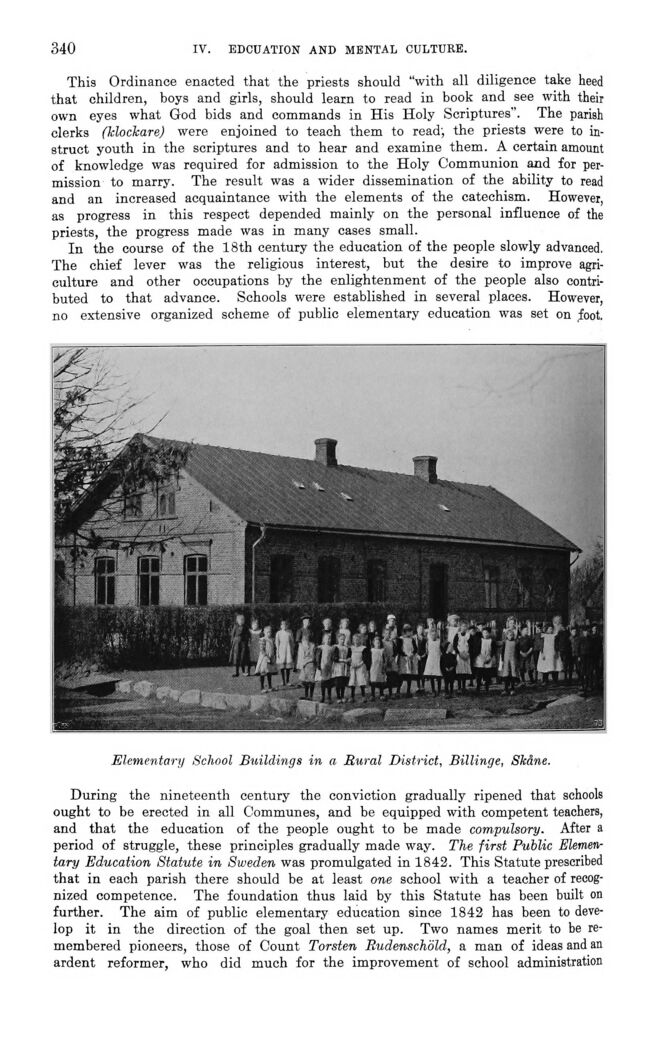
Full resolution (JPEG) - On this page / på denna sida - IV. Education and Mental Culture. Introd. by P. E. Lindström - 1. Elementary Education. By J. M. Ambrosius

<< prev. page << föreg. sida << >> nästa sida >> next page >>
Below is the raw OCR text
from the above scanned image.
Do you see an error? Proofread the page now!
Här nedan syns maskintolkade texten från faksimilbilden ovan.
Ser du något fel? Korrekturläs sidan nu!
This page has never been proofread. / Denna sida har aldrig korrekturlästs.
340
IV. EDUCATION AND MENTAL CULTURE.
This Ordinance enacted that the priests should "with all diligence take heed
that children, boys and girls, should learn to read in book and see with their
own eyes what God bids and commands in His Holy Scriptures". The parish
clerks (klockare) were enjoined to teach them to read; the priests were to
instruct youth in the scriptures and to hear and examine them. A certain amount
of knowledge was required for admission to the Holy Communion and for
permission to marry. The result was a wider dissemination of the ability to read
and an increased acquaintance with the elements of the catechism. However,
as progress in this respect depended mainly on the personal influence of the
priests, the progress made was in many cases small.
In the course of the 18th century the education of the people slowly advanced.
The chief lever was the religious interest, but the desire to improve
agriculture and other occupations by the enlightenment of the people also
contributed to that advance. Schools were established in several places. However,
no extensive organized scheme of public elementary education was set on foot.
Elementary School Buildings in a Rural District, Billinge, Skåne.
During the nineteenth century the conviction gradually ripened that schools
ought to be erected in all Communes, and be equipped with competent teachers,
and that the education of the people ought to be made compulsory. After a
period of struggle, these principles gradually made way. The first Public
Elementary Education Statute in Sweden was promulgated in 1842. This Statute prescribed
that in each parish there should be at least one school with a teacher of
recognized competence. The foundation thus laid by this Statute has been built on
further. The aim of public elementary education since 1842 has been to
develop it in the direction of the goal then set up. Two names merit to be
remembered pioneers, those of Count Torsten Rudenschöld, a man of ideas and an
ardent reformer, who did much for the improvement of school administration
<< prev. page << föreg. sida << >> nästa sida >> next page >>